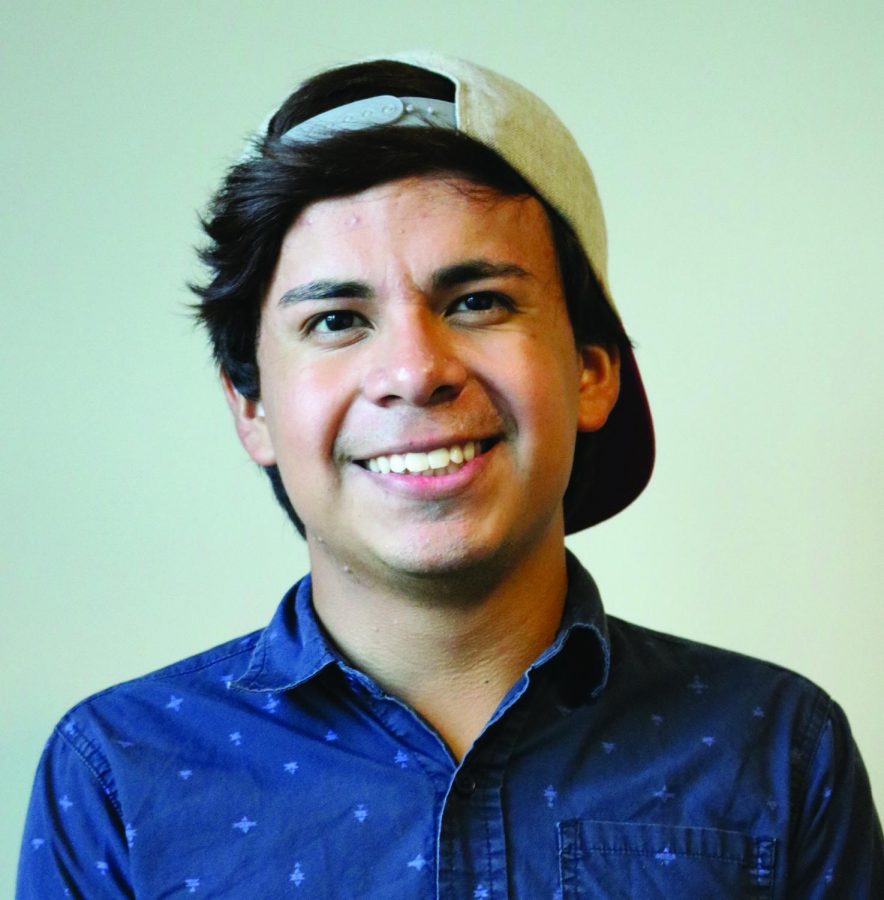Using storytelling, activism to promote social change
“Every social movement begins with one person telling their story.”
Kat Evasco, award-winning stand-up comedian, performing artist and writer, welcomed over 40 students from nine different states and Washington D.C. to the opening workshop of the first Define American Chapters Summit that took place on Friday, Sept. 29 through Sunday, Oct. 1.
First year Mayra Sifuentes and I had the opportunity to be present at the summit where we attended trainings led by national activists about the different ways we can shape the immigration narrative in this country through storytelling and the arts. Define American is a nonprofit media and culture organization that uses the power of storytelling in order to create a dialogue about immigrants, identity and citizenship in a changing America.
Evasco’s workshop was designed for the attendees to explore their own personal narrative. Students from 13 different colleges and universities participated in exercises that better cultivated their storytelling and performance skills.
“Think about one moment in your life that changed the way you looked at the world,” Evasco said.
I closed my eyes and began to reflect about the times I was presented with an injustice. There are several issues affecting the Latinx and immigrant communities right now, including the president’s decisions to end the DACA program and wanting to defund sanctuary cities all over the country. These painful ongoing experiences, although heavy, can serve as motivation to make a change.
Iván Ceja and Justino Mora, founders of UndocuMedia, talked about the importance of being directly involved in movements you are passionate about rather than waiting on the sidelines and waiting for change to happen.
“If you are doing good work with authenticity, then karma will hit you in a good way,” said Mora.
With over 233,000 followers on Facebook and 321,000 followers on Instagram, UndocuMedia is a nonprofit organization that uses digital and social media to empower the undocumented community throughout the United States and highlight immigrant stories.
“I have always found ways to combine my hobby of arts and my passion of activism… this is why I love artivism,” said Ceja.
Artivism, a portmanteau term combining art and activism, refers to art forms such as photography, film, music or writing that raise social awareness on a specific issue. Yosimar Reyes, an artist in residence at Define American, explained how artivism can be used to create pieces that relate to the immigrant experience and that are entertaining. He has directed skits that directly address immigration issues in a humorous way.
“We are laughing at this video, but skits are one way to get people that do not follow politics to engage in this conversation,” said Reyes.
The final session of the summit featured Jose Antonio Vargas, founder of Define American, where he talked about the organization’s history and the importance of creating a more intersectional movement.
“The best part of Define American’s logo is the question mark,” said Vargas. “We are not here to have simple black and white conversations. I want you to know that the Define American Chapters program is only as good as you make it.”
This year, I am proud to be establishing the Guilford College Define American Chapter with the goal of bringing these conversations to our community. I plan on using my love of photography as a tool to dispel the myths surrounding my people, my culture and my history.
How do you Define American?









